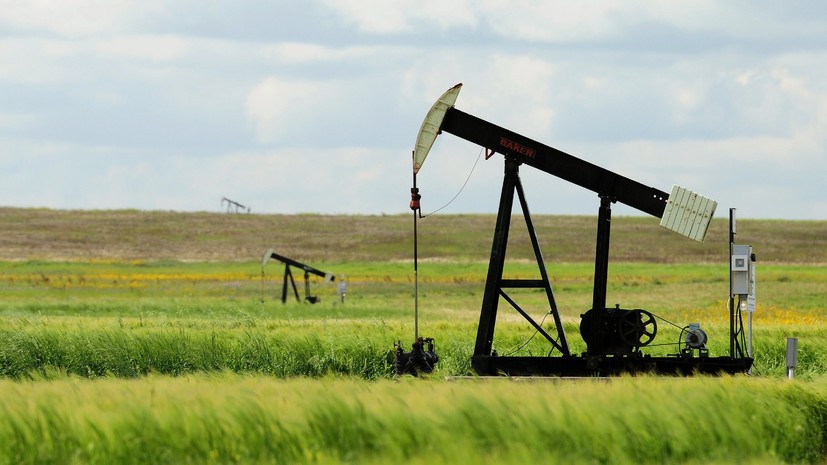The price of Brent crude rose by more than 1.5% and exceeded $ 66. The last time such a value was observed on May 30th. Experts believe that one of the reasons for a noticeable rise in prices is a record decline in stocks of raw materials in the US According to the report of the American Petroleum Institute (API), over the week, the volume of oil reserves in the United States immediately decreased by 7.5 million barrels. The fall was the maximum since December 2018.
"The sharp decline in reserves is due to the fact that the US refineries have increased the production of refined oil, since production is now at historic highs," said RT director of the analytical department of Freedom Finance Vadim Merkulov.
According to the US Energy Information Administration (EIA), the United States currently produces about 12.2 million barrels of oil per day. Against this background, the country is reducing the supply of hydrocarbons from abroad. At the same time, the demand for energy in the States is rising before a new wave of appreciation, therefore, reserves are significantly reduced. This was said in an interview with RT by the head of the analytical department of Amarkets Artem Deev.
At the same time, analysts note, the key factor in the growth of oil prices in recent days has been the worsening of US relations with Iran. The risks of a military conflict between the two states may turn into interruptions in the supply of raw materials throughout the Persian Gulf and cause concern to world investors.
“The escalation of US confrontation with Iran threatens the transportation of oil through the Persian Gulf, which, in turn, is a strategically important place for the supply of energy from East to West,” said Deev.
In mid-June, the United States authorities accused the Islamic Republic of attacking oil tankers in the Gulf of Oman, after which the Pentagon "for defensive purposes" approved the dispatch of additional military forces to the Middle East. On June 20, Iranian soldiers shot down an American drone. According to Tehran, the aircraft violated the border of the country. At the same time, according to the White House, the incident occurred in international airspace.
In response, Donald Trump approved a military strike against Iran, but later reversed his decision and announced the introduction of sanctions against the top officials of the republic. In addition, on June 25, in his Twitter, the head of the White House threatened Iran with destruction in the event of another attack by Tehran on "something American." According to analysts, Trump's words have heightened panic in the global energy market.
According to Vadim Merkulov, in the near future additional support for oil quotes may have a possible warming in the trade relations of the United States with China. According to Xinhua, on the evening of June 25, Vice Premier of the State Council of the People's Republic of China Liu He and US Treasury Secretary Stephen Mnuchin discussed the promotion of bilateral consultations. At the same time, in an interview with CNBC, the head of the American Ministry of Finance announced the readiness of the trade agreement by 90%. Against this background, the attention of investors will be focused on the negotiations of Donald Trump and Chinese President Xi Jinping at the G20 summit on June 28 and 29.
As Vadim Merkulov notes, if the United States fails to conclude a trade deal with the Asian republic, the intensification of the tariff war will trigger a fall in global oil demand. As a result, the cost of hydrocarbons risks dropping below $ 50 a barrel. However, according to the expert, the probability of such a development of events is about 10%.
As expected, the defining event for the global energy industry will be the summit of countries - oil exporters on July 1 and 2. During the talks, the parties will discuss issues of further extending the OPEC + transaction and the volume of the required production cuts. It is noteworthy that in their actions the meeting participants will also be guided by the outcome of the G20 summit.
In general, according to Vadim Merkulov, in the event of an increase in the conflict between the United States and Iran and the warming of Washington’s relations with Beijing, the cost of a barrel of oil may rise above $ 70 a barrel, and will remain in the $ 60-70 range until the end of summer. At the same time, according to Artem Deev, quotes can and can grow up to $ 80 per barrel.

